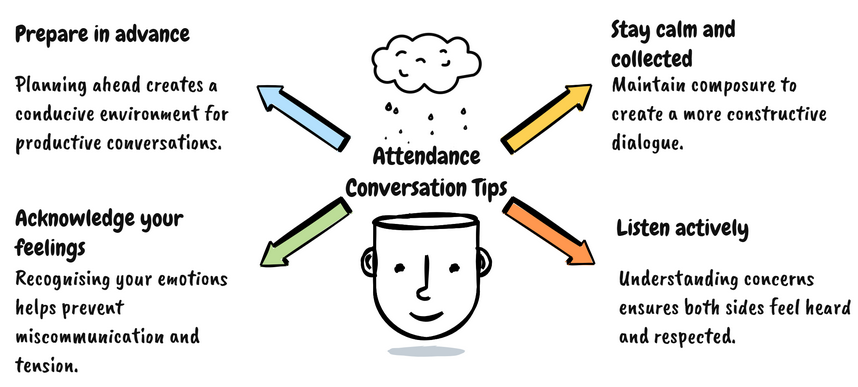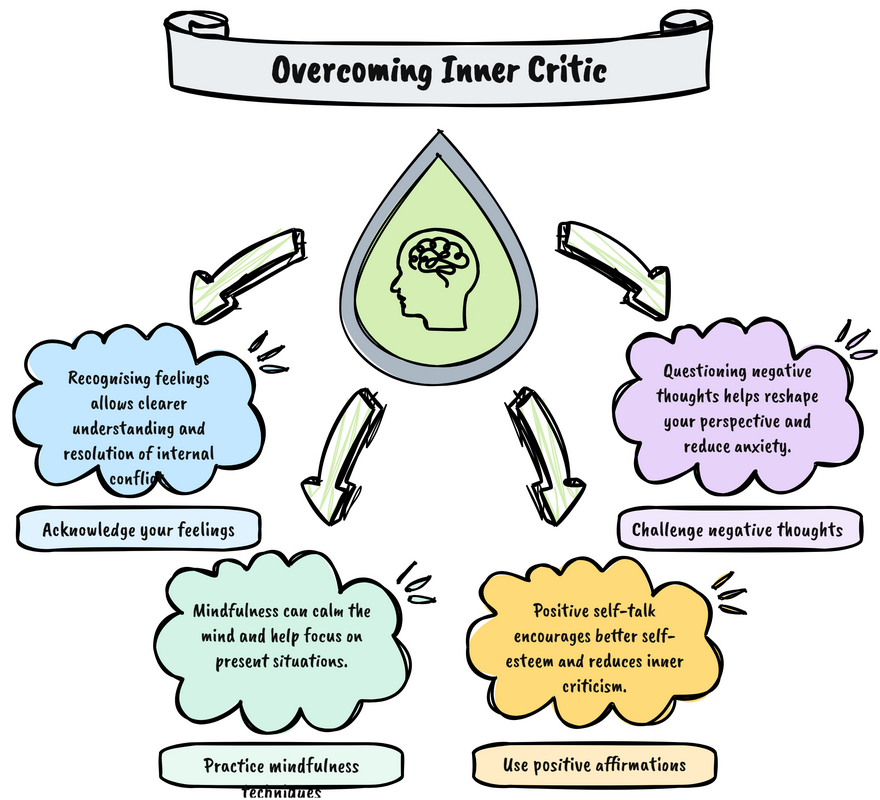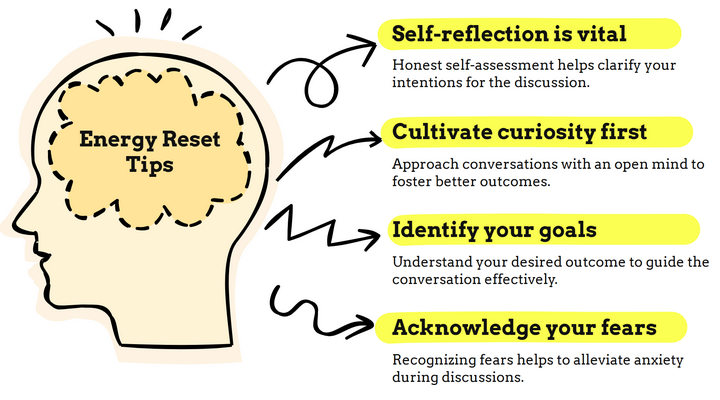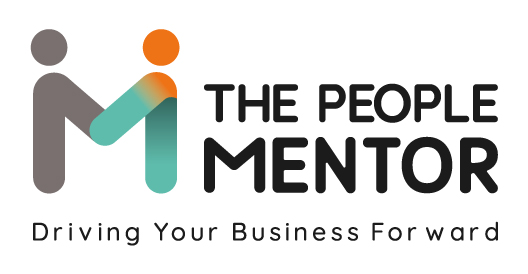Hi, I’m Nicola from The People Mentor.
I’m here to help you lead your team with clarity, confidence, and care—even when things feel properly messy.
And today, I want to talk about something that most leaders don’t even realise they’re doing…
Letting their inner critic completely hijack their energy and sabotage their conversations before they’ve even started.
Do you know what I mean? You’ve prepared what you’re going to say. You’ve thought through your key points. You might have even practised the conversation in your head.
But then you walk into that room, and your energy is all wrong. Your jaw is tight. Your voice has an edge. And the person sitting across from you can feel it before you’ve even opened your mouth.
So today, we’re talking about leadership energy: What it actually is, how your inner critic loves to mess with it, and most importantly, how to shift from pressure to presence so your difficult conversations actually work.
Let’s get into it.
What Is Leadership Energy?
When I talk about leadership energy, I’m not talking about being the most enthusiastic person in the room or bouncing into meetings with jazz hands.
I’m talking about the felt sense people get from you.
Are you open, or are you already braced for battle?
Are you calm, or are you carrying yesterday’s stress into today’s conversation?
Are you holding space for the other person, or are you trying to control the outcome?
Leadership energy is that invisible signal you’re broadcasting before you’ve even said hello. And it has a massive impact on how people respond to you, especially when the conversation is about something difficult.
I learned this the hard way.
A Story That Still Makes Me Cringe
A few years ago, I had to have a conversation with someone on my team about their attendance. They’d been late a few times, and it was starting to affect the rest of the team.
I thought I had it all sorted. I’d planned what to say. I was going to be understanding and supportive. I was going to ask about what was happening for them and how I could help.
But here’s what actually happened.
I walked into that meeting carrying the frustration from three other things that had gone wrong that morning. My phone had died, I’d spilt coffee on my white shirt, and I was running behind myself.
So when I sat down, I was already wound up. My shoulders were tense. I was speaking a bit faster than normal. And although my words were saying “I want to understand what’s going on,” my energy was screaming “I’m annoyed and this is just another problem I have to deal with.”
The conversation went nowhere. They became defensive. I became more frustrated. And we both left feeling worse than when we started.
It took me weeks to repair that relationship.
That’s when I realised that my energy was either going to make or break every difficult conversation I had.

The Science Bit (Don’t Worry, It’s Quick)
Your team aren’t just listening to your words. Their brains are picking up on your tone, your facial expressions, your body language – everything.
There’s something called neuroception, which is your brain’s threat detection system. It’s constantly scanning for signs of safety or danger, and it doesn’t ask your conscious mind for permission.
When your energy is tight, critical, or rushed, other people feel it. And their nervous system responds by either shutting down or going into defence mode.
So you might be saying, “This is just a quick check-in,” but their brain is hearing “Danger! Get ready to protect yourself!”
This is why your intention needs to be felt, not just spoken. Because people’s nervous systems are way smarter than their logical minds.
When Your Inner Critic Takes the Wheel
I used to talk about different parts of ourselves using terms that felt a bit too clinical for my liking. But I’ve realised what we’re dealing with is that familiar inner critic that we all know so well.
You know the voice. The one that shows up right before meaningful conversations with helpful comments like:
“They’re probably going to get defensive anyway.”
“This is going to be awkward.”
“I’m not good at this stuff.”
“What if they think I’m being unfair?”
“I should just leave it and hope it sorts itself out.”
When your inner critic is driving, your leadership energy gets hijacked.
You end up carrying:
- Frustration (because you’re already expecting it to go badly)
- Urgency (because you just want to get it over with)
- Control (because you’re trying to manage their reaction)
- Anxiety (because what if it all goes wrong?)
And the conversation becomes about managing your discomfort rather than actually helping the other person.
But when you can quiet that inner critic and lead from your wiser, calmer self, everything changes.
Now you’re grounded. You’re curious. You’re present.
You can be firm without being harsh. Clear without being cold. Direct without being dismissive.

What This Looks Like in Real Life
Let me give you a concrete example.
Let’s say you need to address someone who’s been missing deadlines.
If your inner critic is running the show, it might sound like this:
“We need to talk about your performance. I’ve noticed a pattern here, and it’s becoming a problem.”
Can you hear the edge in that? The assumption? The tension?
But if you’re leading from that calmer, wiser part of yourself, you might say:
“I’ve noticed a couple of deadlines have been missed recently, and I wanted to understand what’s been getting in the way and how I can best support you moving forward.”
Same message. Completely different energy.
The first approach puts them on the back foot immediately. The second creates space for an actual conversation.
How to Reset Your Energy Before Difficult Conversations
Right, let’s get practical. Here’s what I do now before any tricky conversation.
Step 1: Check in with yourself honestly
Ask yourself:
- Am I coming into this with curiosity, or am I already convinced I know what’s wrong?
- What do I actually want to achieve here?
- What am I afraid might happen?
Just asking these questions creates space between you and your automatic reactions.
Step 2: Take 30 seconds to reset
This could be:
- Three deep breaths where you focus on the exhale
- Placing your hand on your chest and reminding yourself, “I choose calm”
- Looking out the window and noticing something you haven’t seen before
I know it sounds simple, but these micro-moments genuinely reset your nervous system.
Step 3: Choose your approach intentionally
Ask yourself:
- Do I need to listen and understand more before I say anything?
- Do I need to be clear and direct about expectations?
- Do I need to problem-solve together?
This gives you a compass, not a script.

A Quick Checklist Before Your Next Difficult Conversation
Before you walk into that room, check:
✅ Am I speaking from clarity or anxiety?
✅ Am I rushing this or giving it the time it deserves?
✅ What might my body language be saying that my words aren’t?
✅ Have I left my inner critic at the door?
Even just noticing where you are makes a difference.
When Things Go Sideways Mid-Conversation
Because let’s be honest, sometimes the conversation starts well and then takes a turn.
Here’s what you can say to reset things:
“I want to pause here for a second. I don’t think I’m coming across the way I mean to.”
“Let’s take a breath. I want to make sure we’re having the conversation that’s going to help here.“
“I can feel this getting a bit tense. Can we step back and try a different approach?”
You’d be amazed how much people appreciate this kind of honesty. It shows self-awareness and genuine leadership.
A Personal Reality Check
A few weeks ago, I opened an email from a supplier chasing an overdue invoice.
I’d been juggling a backlog of work, unexpected costs, and late payments coming in. By the time I hit reply, my head was full of stress, and my tone followed.
Halfway through typing, I stopped. I could see my frustration dripping into every line. That wasn’t fair. And it wasn’t going to get me the outcome I wanted. So I scrapped it and started again. This time with a calmer head and a clear message.
That small reset changed everything. They responded quickly. We sorted the payment plan. No drama. It’s easy to think we can push through our emotions when we work alone.
But the truth is, your state of mind leaks into your words.
The People Mentor
And people feel it.
It completely changed the dynamic.
The point is, you don’t have to be perfect. You just have to be aware. And when you notice you’re off track, you can choose to course-correct.
Three Questions to Ask Yourself Right Now
- When do I feel most grounded and calm in difficult conversations?
- What typically triggers my inner critic before these conversations?
- How can I anchor myself in that calmer, wiser energy when things feel tense?
Just one insight from these questions can change how you show up next time.
The Bottom Line
You don’t need to be perfect to be powerful. You just need to be present.
And presence starts with energy.
So before your next difficult conversation, ask yourself:
Who’s driving this conversation—my inner critic or my wiser self? Am I trying to connect or control? What do I want this person to feel by the end of our chat?
That’s where real leadership happens.
Right. That’s it from me today. If this resonated with you, I’d love you to share it with someone who’s dealing with tricky team dynamics right now.
Remember, having difficult conversations is part of leadership. But they don’t have to be horrible.
I’m Nicola from The People Mentor, and I’ll see you next time.
Want to delve deeper? Then watch this video about what you can and can’t control.
